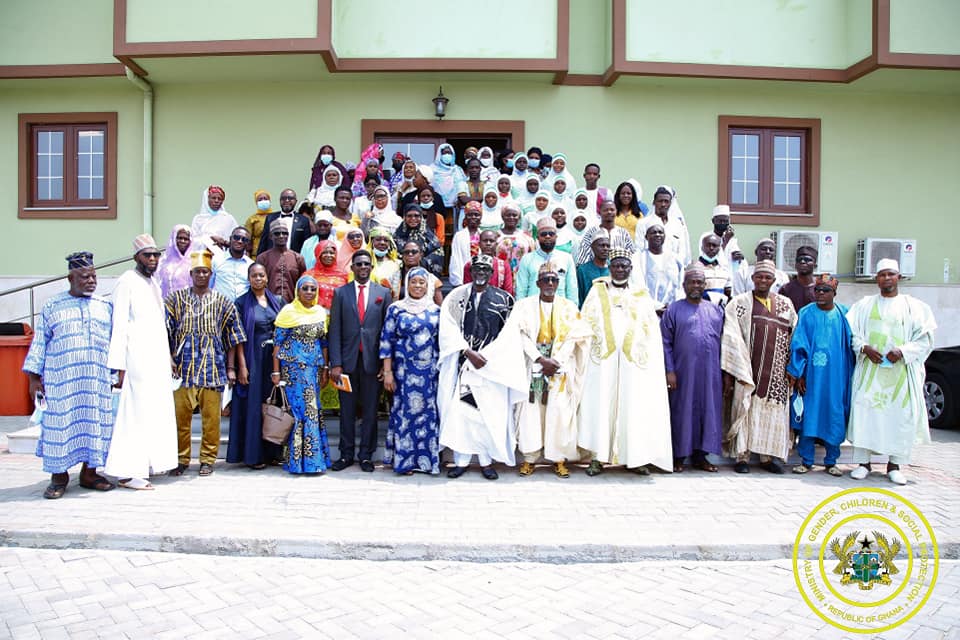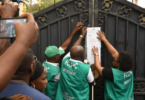sorry by: Ishmael Barfi
According to the United Nations Population Fund, (UNFA), Country Representative, Mr. Niyi Ojuolape, over 200 million girls and women have undergone FGM with about 4 million girls at risk of experiencing FGM annually.
He further said, UNFPA also estimates that an additional 2 million cases of FGM may occur over the next decade.
The United Nations Populations Fund (UNPA) Representative Mr. Niyi Ojuolape made this revelation at a national stakeholder event at the Ghana National Mosque on the 7th of February, 2022 in Accra under the theme: “Accelerating Investment to End FGM”.
“A recent report from the 2021 Population and Housing Census (PHC), indicated that the practice of FGM among women 15-49, is at 2.4 per cent with high rates in the Upper West (32.5per cent) and Upper East (13.2per cent) Regions and FGM among children 0-14 is 0.1 per cent”, he reiterated.
The Representative mentioned the need for a collective effort to build an agile and resilient system to accelerate investment to end FGM.
He also highlighted that UNFPA Ghana launched a three-year project in 2021 with an implementation focus in the northern part of Ghana, precisely around the border communities of Upper East and Upper West Regions.
Delivering her keynote address, the Deputy Minister for Gender, Children and Social Protection, Hon. Lariba Zuweira Abudu noted that FGM constitutes an extreme form of violation and discrimination against girls and women.
According to Hon. Lariba Zuweira, the practice also violates a person’s rights to health, security, and physical integrity; the right to be free from torture and cruel, inhuman, or degrading treatment; and the right to life, in instances when the procedure results in death.
Hon. Lariba Zuweira Abudu further stressed that the Ministry of Gender, Children and Social Protection does not consider violence against women and girls a public canker only, but a developmental challenge which distresses a large portion of the Ghanaian population and their influence to national development.
She further pledged the Ministry’s commitment to collaborate with relevant stakeholders to create awareness on the fight against FGM while leveraging on opportunities for collaboration and resource mobilization for effective prevention, protective measures and services for victims.
On his part, the Public Relations of the Council of Zongo chiefs in Accra, Chief Baba Issah Imoro, appreciated the invitation extended to chiefs and indicated the willingness members of the council to serve as advocates to sensitize their constituencies on the need to have ZERO FGM in their communities due to its negative effect on women and girls.
Susan Adwoa Mensah the Social Development Adviser at the Foreign, Commonwealth & Development Office of the British High Commission participated in the event.
The participants included traditional and religious leaders, women groups, students, FGM survivors and representatives of some state agencies were encouraged to join the in the campaign to eliminate FGM.
At the end of the national As partners in attaining the Sustainable Development Goals, the media and civil society organizations are invited to rally behind this campaign and use effective communication means to spread crucial gender-responsive messages in order to put a stop to the practice.
The United Nations General Assembly declared February 6th as International Day of Zero Tolerance for Female Genital Mutilation (FGM) in 2012, with the goal of amplifying and directing efforts to end the practice.
Female Genital Mutilation is a practice that involves altering or injuring the female genitalia for non-medical reasons.
It causes major health problems and even death. Additionally, it exposes girls to a higher risk of child marriage, jeopardizing their capacity to establish a better future for themselves, their families, and their communities.
Millions of girls are at increased risk of FGM as a result of the COVID-19 pandemic.
Lockdowns, closed schools and disruption to services that protect girls from this harmful practice implies an additional 2 million cases may occur over the next decade.
Source: www.thenewindependentonline.com









